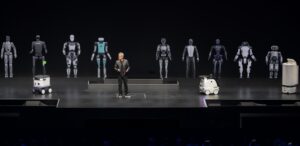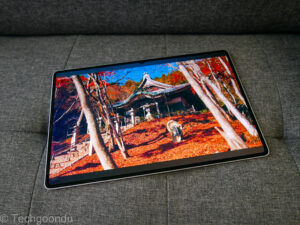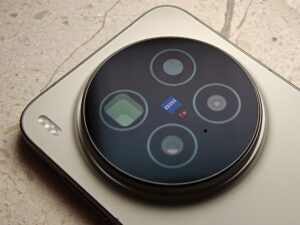When Jensen Huang, the head honcho of Nvidia, strolled down a night market in his trademark black jacket days before this year’s Computex show in Taipei, you could sense a media moment that was smoothly executed.
Very much the man of the moment in technology, Huang has often talked up his place of birth, referring to it as an important part of global innovation.
Now an American citizen, he once again told reporters following his night market visit last week that Taiwan was “one of the most important countries in the world” as it was at the heart of the electronics industry.
That the man behind the hottest chips for AI today was together with some of most important figures in today’s AI and semiconductor rush is abundantly obvious too.
Huang dined with Taiwan Semiconductor Manufacturing Co (TSMC) founder Morris Chang, Quanta Computer founder Barry Lam, MediaTek chairman Tsai Ming-kai and other tech tycoons, reported Taiwanese media.
TSMC is the premier chip manufacturing company that Apple, Nvidia and even rival Samsung counts on to make the most advanced chips, because it has the latest technology that nobody else has.
Lesser known Quanta is also a key player that makes and designs servers running AI workloads in data centres, while MediaTek is a maker of smartphone chips rivalling the United States’ Qualcomm.
The concentration of these tech tycoons in Taiwan’s largest technology show this week is no fluke. It signals a resurgence of the island as a technology powerhouse after years of being sidelined by market watchers.
In the past decade or two, when cloud computing was on the rise, digital economy companies such as Google, Uber and Alibaba were seen as the new value creators.
Where did Taiwan, which became an Asian Tiger with the help of the electronics and PC boom in the 1980s and 1990s, fit in?
PC or computer hardware, as many foretold earlier, was not so important any more because it was commoditised and easily available in the age of cloud computing. The same for semiconductors, an industry that was so streamlined that it was “boring”.
PCs and semiconductors, which were so intricately tied to Taiwan’s economy, struggled to find new uses, as they became common and easily replaceable.
Innovation was in the shape of incremental, small steps because there wasn’t a killer app, for want of a better word, that needed all that additional horsepower.
Now, however, the spotlight is back on PCs, in particular, AI PCs, and Taiwan is at the centre of things again. With the hype spurred on by ChatGPT, every company or user seems to be rushing to learn how to use AI.
Instead of running this on the cloud, as ChatGPT is offered, however, PC makers are pushing for AI to run on each user’s PC.
This could be a simple task, like setting the background on your Zoom call. Or using the Windows Copilot assistant to summarise a report, create an animated greeting or even write a software program.
By running these tasks right on your own PC, the idea is that the data is kept privately on your machine. Plus, this reduces the latency and cost of going to the cloud to run these tasks.
The verdict is still out on these AI PCs, to be honest, and most users are still yet to warm up to them. However, every personal technology company is rushing out AI features, which necessitate more powerful AI-focused chips.
Qualcomm, in a recent coup, partnered with Microsoft to launch its Snapdragon X chips that promise to run AI workloads with the additional performance needed while also providing long battery life.
More known for its smartphone processors, it is facing off against traditional PC chip makers AMD and Intel, which are both using Computex this week to launch their own chips for AI PCs.
Embed from Getty ImagesAMD, whose CEO Lisa Su was also born in Taiwan and is a cousin of Nvidia’s Huang, has revealed its Ryzen AI 300 Series processors today. Intel is expected to take the wraps off its upgraded AI chips, codenamed Lunar Lake, tomorrow. Yes, the PC is sexy again.
To be sure, much of the cutting-edge AI innovation is still being developed at the labs of OpenAI, Meta, Google and other American Big Tech companies. However, to run these AI workloads, you need the hardware, which is what Taiwan has always been good at producing.
Not in some years, as some members of the media gathered in Taipei this week pointed out, have so many of the world’s top CEOs turned up in the city for Computex in the same year.
Yes, that includes Nvidia and Jensen Huang. Though his money today is made more from the high-performance graphics processing units (GPUs) he’s sold to cloud and data providers to train large AI models, he did showcase GPUs for AI PCs that promise to boost performance for consumers as well.
It’s a reminder too, that his Nvidia GPUs, the most treasured commodity in this AI hype cycle, were originally made for the PC. In particular, gaming PCs that needed the extra performance to pump out the realistic graphics for a niche, geeky subsection of the PC user base.
You could say that Huang was smart to turn his GPUs into easy-to-use tools for AI developers years ago, which has now given him a headstart over his rivals.
Or you could say that his story is not unlike Taiwan’s, which is basically trusting in one’s importance in a global innovation story and keeping the faith in one’s efforts.
Embed from Getty ImagesDon’t forget the number of times people have written off the PC over the years. It was supposed to be replaced by first Palm devices, then iPads, then cloud computing. Yet, it’s still an indispensable tool today.
Taiwan, too, has been written off before. With its economy so closely tied to the PC, it has faced detractors who pointed to the waning fortunes of a machine invented in the 1980s. Today, however, that story has changed dramatically.
The Taiwanese economy has been lifted by the surge in AI chip demand. It is growing at its fastest in three years, at 6.51 per cent year on year to NT$5.46 trillion.
How long this will continue is difficult to tell. Technology hype cycles come and go. And yes, Taiwan still has its problems with low salaries for young graduates amid high housing costs, which AI chip demand won’t solve overnight.
Still, there seems to be a buzz in this year’s Computex, unlike previous years. And there is a genuine feeling that Taipei, where the show is on this week, has turned a corner and is back at the centre of the most important technologies today.






